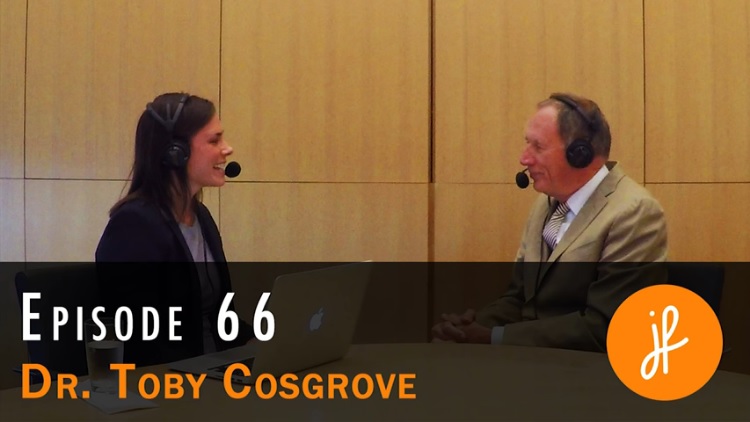On her “Pursuing Health” podcast, SteadyMD Partner Dr. Julie Foucher recently interviewed Dr. Toby Cosgrove, President and Chief Executive of Cleveland Clinic, one of the largest and most-respected health care systems in the world.
Dr. Cosgrove is a sought-after speaker worldwide. He has addressed the World Economic Forum Annual Meeting at Davos, Switzerland, and the Senate Health, Education, Labor and Pensions Committee, in Washington, D.C. He is regularly quoted and featured in national magazines and newspapers, including a cover story in Time, and major articles in Newsweek, The New York Times, and The Washington Post. He has appeared on CNN, Fox News, MSNBC, NBC, CBS, “The Charlie Rose Show” on PBS, and other national media outlets.
Dr. Cosgrove says that everything we know about healthcare is changing:
- Where you’re going to get your care. Less and less at the hospital, and more outpatient care.
- Who is going to take care of you. More Physicians Assistants (to address the doctor shortage).
- The diseases that will be treated. More chronic diseases.
- The treatments that you’re going to get will expand.
What Dr. Cosgrove didn’t mention, however, was how the delivery of care is changing with modern technology.
We think the how is a big deal. Really important. And that it changes everything.
With our mobile devices, we can get care anywhere. At home, at work, and on the road.
With secure video chat and text messaging, and the ability to work from home and directly serve a limited number of patients, the day-to-day of a primary care doctor can radically change. Further, with the internet, patients can choose a primary care doctor that perfectly matches their life and needs.
None of this was previously possible in a traditional hospital or outpatient setting.
How might all of this effect our current shortage of primary care doctors? Will a greater number of medical students be interested in primary care? Will they feel more empowered? More able to address the root cause of disease, rather than just treat symptoms? Make a meaningful impact in the daily lives of their patients?
Will this be an Uber-like situation, where the ease-of-use and market-enhancing qualities of technology completely changes the game for all parties involved?
